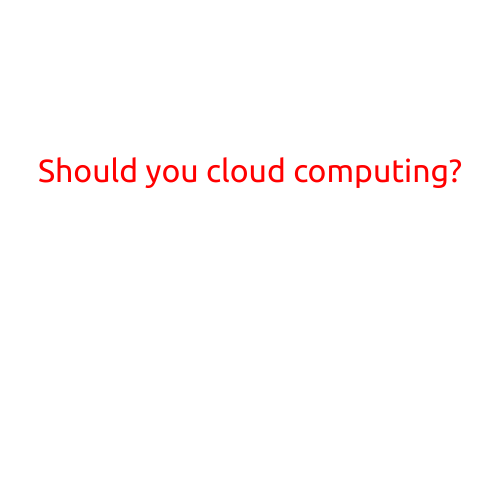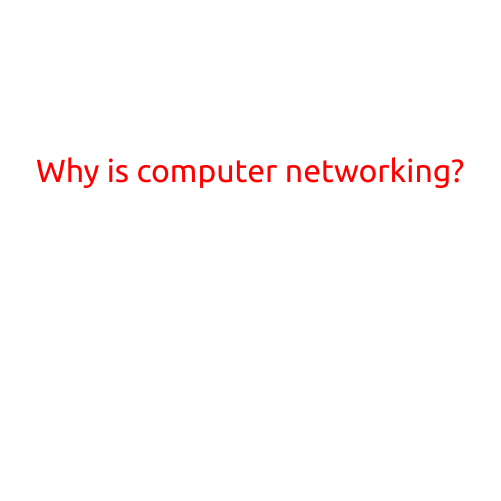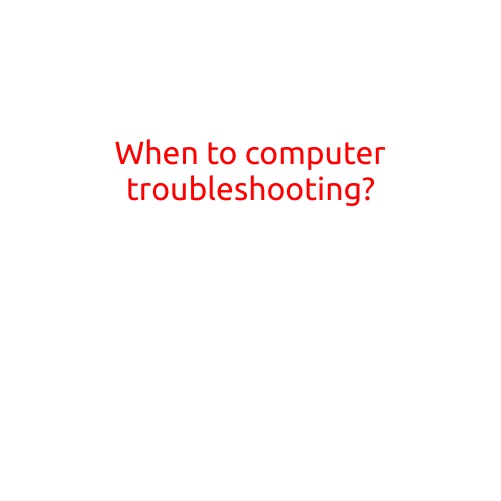
Should You Consider Cloud Computing?
In today’s digital age, cloud computing has become an increasingly popular trend. More and more businesses and individuals are adopting cloud computing as a way to store, manage, and access their data, applications, and services. But is cloud computing right for you? In this article, we’ll explore the pros and cons of cloud computing to help you make an informed decision.
What is Cloud Computing?
Cloud computing is a model of delivering computing services over the internet. Instead of hosting your own physical servers, you store and manage your data, applications, and services on remote servers maintained by third-party providers. This allows you to access your data and applications from anywhere, at any time, and from any device with an internet connection.
Pros of Cloud Computing
- Scalability: Cloud computing allows you to easily scale up or down to meet changing business needs. You only pay for the resources you use, which makes it an cost-effective option.
- Accessibility: With cloud computing, you can access your data and applications from anywhere, at any time, and from any device with an internet connection.
- Reliability: Cloud providers typically have multiple data centers and backup systems in place to ensure high uptime and availability.
- Security: Cloud providers typically have advanced security measures in place to protect your data, including encryption, firewalls, and access controls.
- Cost-Effective: Cloud computing can help you reduce costs by eliminating the need for physical infrastructure, maintenance, and upgrades.
- Flexibility: Cloud computing allows you to choose from a range of deployment models, including public, private, and hybrid clouds.
Cons of Cloud Computing
- Security Risks: While cloud providers have robust security measures in place, there is still a risk of data breaches and cyber attacks.
- Dependence on Internet: Cloud computing requires a reliable internet connection, which can be a problem if your connection is slow or unreliable.
- Data Ownership: When you store data on a cloud provider’s servers, you may lose control over your data and may be subject to data retention policies.
- Vendor Lock-In: You may be locked into a specific cloud provider’s ecosystem, making it difficult to switch to a different provider.
- Outages: Cloud providers may experience outages or downtime, which can impact your access to your data and applications.
- Data Transfer Speed: Depending on your internet connection speed, transferring large amounts of data to or from a cloud provider may be slow.
Who Should Consider Cloud Computing?
Cloud computing is a good fit for individuals and businesses that:
- Need flexible scalability and capacity
- Want to access their data and applications from anywhere, at any time
- Need a cost-effective solution for data storage and management
- Are looking for a robust and reliable infrastructure
- Are willing to entrust their data to a third-party provider
Who Should Avoid Cloud Computing?
Cloud computing may not be the best fit for individuals and businesses that:
- Have highly sensitive or confidential data that requires absolute control
- Need absolute reliability and uptime
- Have a limited or unreliable internet connection
- Need complete control over data location and ownership
- Are not willing to entrust their data to a third-party provider
Conclusion
Cloud computing can be a powerful tool for individuals and businesses, offering scalability, accessibility, reliability, security, and cost-effectiveness. However, it’s essential to carefully consider the pros and cons of cloud computing before making a decision. If you’re looking for a flexible, scalable, and cost-effective solution for data storage and management, cloud computing may be the right choice for you. However, if you have specific requirements or concerns, you may want to consider alternative options. Ultimately, the decision to adopt cloud computing depends on your unique needs and circumstances.





